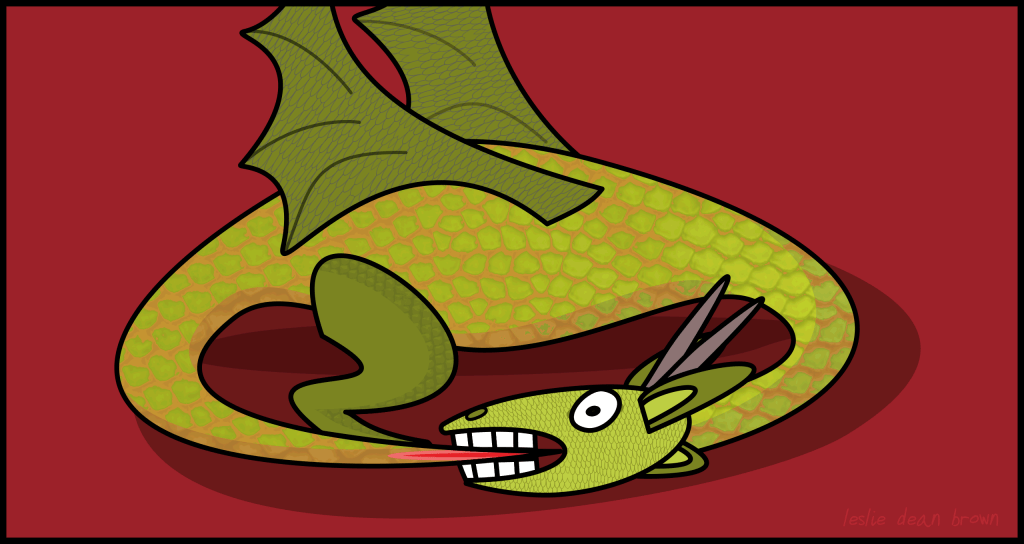Erwin Schrödinger theorized in his 1944 book “What is Life?” that contrary to the general tendency dictated by the Second law of thermodynamics, life decreases or maintains its entropy by feeding on negative entropy.
One of the most difficult questions to answer is “what is the purpose of life?”. But how can we possibly answer what the purpose of life is if we don’t even know what life is?
What is life? Go to a year 9 science book and the definitions will vary. They will undoubtedly mention the following processes: Homeostasis, Organization, Metabolism, Growth, Adaptation, Response to stimuli, Reproduction. By these definitions, would ‘life’ from another planet even classify as life?
Whenever we attempt to ask what constitutes life, we arrive at all sorts of vague definitions, for example:
“the quality that distinguishes a vital and functional being from a dead body”
“a principle or force that is considered to underlie the distinctive quality of animate beings”
“an organismic state characterized by capacity for metabolism, growth, reaction to stimuli, and reproduction”
“the condition that distinguishes organisms from inorganic objects and dead organisms, being manifested by growth through metabolism, reproduction, and the power of adaptation to environment through changes originating internally.”
“the sum of the distinguishing phenomena of organisms, esp. metabolism, growth, reproduction, and adaptation to environment.”
There are many definitions of what life is, but for every one of these sub-classifications, there are exceptions:
Adaptation to the environment. At what rate must life adapt for it to be considered alive? If we rapidly create an artificially toxic environment, no life form will be able to adapt in time and hence it will die. The same can be said for the “reaction to stimuli” argument. The entire plant kingdom is at a great disadvantage here – although they can adapt relatively quickly to their environment, plants can only react to stimuli very slowly. Viruses do not appear to react to anything. In fact, I suspect that “adaptation to the environment” and “reaction to external stimuli” are really disguised as the same thing, albeit at different rates of application.
Reproduction can never be a valid prerequisite for life (at least for an individual being or entity). The process of reproduction occurs in every single life form on this planet, it has therefore not surprisingly swayed our perspective when we think about all life forms. Life is more than reproduction.
I suspect that reproduction is a way of minimising damage to our core DNA instructional program, by relaying this information over different generations (more on that later). I can easily imagine an organic being which is alive and does not need to reproduce to survive by continually renewing itself. Imagine the last surviving example of an endangered heterogenous species: in the short term, it is alive despite facing certain extinction (unless cloned). But in the long term, in the future, it (defined as a species) is already dead. Eunuchs are alive; so are spayed or neutered dogs — but neither can reproduce.
Nor can DNA or metabolism be a criterion for life. In biology, the word ‘metabolism’ usually refers to Earth-bound chemistry. Doesn’t this preclude off-world life? DNA is merely a recipe for life on this planet, it is not a blueprint for ALL life.
It seems to me that our definition of life is extremely Earth-centric. This is again perhaps not very surprising since it’s the only life we know about (so far). So I think it’s time to attempt to define life in a new way. But how can we ever begin to grasp the chemistry on other planets or in other galaxies? Well, we might not have to know. We just need to define one single common process of life. What do all life forms have in common?
Interestingly time is an essential factor when we consider the concept of life. It is present in all the above definitions of life (metabolism, reaction to stimuli & environment, growth and reproduction). We cannot think of definitions of life without thinking about time as well. The concept of time is an essential component. A life-form cannot be defined as alive without measuring one of its characteristics against time. Although so far knowing all this doesn’t help us much.
What other parameters do we know about the cosmos that don’t change? What if we could define life in terms of one of these constants, by direct comparison?
One of the most commonly accepted universal ‘laws’ (at least ) is the second law of thermodynamics, which basically states that the universe tends towards a state of disorder. You need to add energy to a system for it to become more ordered. In general, it’s a rule that cannot be broken. But I’ve never completely understood this, because according to most thermodynamics lecturers, this planet should be an amorphous lump, along with all the others in our Solar system. With this rule, you’d also expect the cosmos to be a 100% random distribution of gas molecules by now… I’m not arguing against the second law… it just made me think.
Physicists and thermodynamicists conveniently talk about open, closed and isolated systems and then scale the size of these imaginary boxes into whatever sizes fit their models in order to analyse various processes (either real or hypothetical). In our situation, they’d include the Sun in the size of their box to take into account its energy transfer. That doesn’t mean much to me.
What does all this have to do with life? Quite simply, as time passes, life in general has the unique capacity to re-arrange resources for itself and all by itself. It’s the one trait that separates inanimate objects (stuff that doesn’t appear to do anything) from animate objects (which do things spontaneously). Let’s just say that life evolves into more and more complex, ordered forms over prolonged time periods.
At first glance, you might not think that we as a civilisation are very organised. You might even call life “crazy” or “chaotic”. Look a bit closer, and you’ll see that the opposite is true. The very word “chaos” essentially means “an apparent state of randomness with the presence of an underlying order”. Think about the intertwined postal networks, telecommunications networks, street networks, social networks, food networks. Think about the logistical nightmare of supplying all the many things we consume on a daily basis; every single thing needs to be prototyped, tested, packed, inventoried, advertised, distributed, sold, consumed and disposed. That’s essentially what everyone is working toward: to offer a sevice to some one or some thing. Compare the sheer complexity of this life with the alternative: a completely barren desert lifeless landscape. Think about all the bits of information that we’ve created and stored in the world; think about the position of every single atom or molecule in both scenarios and then decide which one is more complex. Which one has had more order applied to it?
Consider the following new definition of life: any self-generating system which decreases local entropy levels over the long term. Why do I stipulate “self-generated”? Because artificial machines aren’t really considered alive until they can self-assemble or reproduce; once they become self regenerating, I’m sure they’ll be considered rudimentary forms of life too.
Large businesses [ironically called “organisations”] grow, react and in a sense spawn new companies. Still, these are not considered alive in the traditional sense because they are not self-generating. [Incidently- that could be one reason for the failure of large companies; there is so much re-organising going on, not enough work gets done!]
Viruses usually provide an example of a hazy distinction between life and non-life. In the traditional sense, viruses cannot reproduce on their own; hence some people do not consider them as valid lifeforms.
Using the entropy definition of life, parasitic viruses are only alive in terms of the whole system -when combined with the host organism. In other words, when you include the host as a part of the system, then they are both alive; if not, then the virus is ‘dead’. Like any parasite, you cannot define their existence without looking at the host as well. In my opinion, a virus is still alive in a sense since it replicates the genetic code (just another form of information).
I think we need to look more at entire systems, not just solitary organisms. You cannot draw black-and-white conclusions about life without looking at the surrounding environment. Highly constrained niche ecosystems are alive but very interdependent. If you remove one individual species it often cannot survive on its own. Indeed, remove just one ‘keystone’ species and you risking collapsing the entire ecosystem.
All this is not to say we break the second law of thermodynamics or that we are somehow exempt from its effects. Quite the contrary. There is an external all-pervading neutralising force which constantly acts against us.
Entropy manifests itself in various ways by attempting to randomise us. We experience both cellular and molecular degradation. The action of foreign chemicals & UV rays first come to mind. Cosmic rays, X-Rays, etc directly tamper with our DNA code. The bus that flattens you on the street has done a good job of increasing your entropy state. In fact, it seems that intelligent life itself has the potential to completely self-destruct. We’ve become too good at killing everything and we risk our own survival. I believe that this is entropy playing an unconscious revenge-effect type of role. Nope, it’s not some kind of god. Some people call this effect irony, some call it Karma.
I’ll admit that I am definitely not the first person to think about the connection between life & entropy in this way although I’m proud to say that did come to this conclusion independently … only 64 years too late!
American biochemist Albert Lehninger, argues that “living organisms preserve their internal order by taking from their surroundings free energy, in the form of nutrients or sunlight, and returning to their surroundings an equal amount of energy as heat and entropy.”
Ville Kaila and Arto Annila of the University of Helsinki describe how evolution explores possible paths to level differences in energy densities and so increase entropy most rapidly. Thus, an organism serves as an energy transfer mechanism, and beneficial mutations allow successive organisms to transfer more energy within their environment.
We are told very early on that this law cannot be broken. I think you know the one thing that ‘breaks’ this rule. Life. Life itself does not seem random. However, it certainly seems chaotic. But if you’ve read about chaos theory, it talks about “order in disorder”. What may seem disordered and random may in fact have an underlying order to it. Be it an international airport or the phenomenon we call the weather. It’s controlled by a simple set of rules, but all of these interacting together make it extremely difficult to predict. Some would say impossible. It takes someone like the mentalist to know what’s really going on.
This blog is essentially information (which is order) presented as a series of words (ideas). You could easily convert this paragraph into binary for example. Then it looks very ordered indeed. How am I able to do that?
01011001 01101111 01110101 00100000 01100001 01110010 01100101 00100000 01110010 01100101 01100001 01100100 01101001 01101110 01100111 00100000 01110100 01101000 01101001 01110011 00100000 01100010 01101111 01101111 01101011 00100000 01101110 01101111 01110111 00100000 01100001 01101110 01100100 00100000 01111001 01100101 01110100 00100000 01100010 01101111 01110101 01101110 01100100 00100000 01100010 01111001 00100000 01110100 01101000 01100101 00100000 01110011 01100101 01100011 01101111 01101110 01100100 00100000 01101100 01100001 01110111 01110011 00100000 01101111 01100110 00100000 01110100 01101000 01100101 01110010 01101101 01101111 01100100 01111001 01101110 01100001 01101101 01101001 01110011 0101110 00100000 01010100 01101000 01101001 01110011 00100000 01100010 01101111 01101111 01101011 00100000 01101001 01110011 00100000 01100101 01110011 01110011 01100101 01101110 01110100 01101001 01100001 01101100 01101100 01111001 00100000 01101001 01101110 01100110 01101111 01110010 01101101 01100001 01110100 01101001 01101111 01101110 00100000 0101000 01101111 01110010 01100100 01100101 01110010 0101001 00100000 01110000
A thermodynamicist will talk about open and closed systems. That I need to look at the bigger picture, the net energy gain, not just the gross product. The net energy lost is the food and drink which I consume or ‘burn’ and convert into heat, thought and finger movement. That in order for me to produce a certain amount of order, I have taken it from somewhere else and created a net waste. Rest assured, my brain is working overtime right now. I certainly don’t feel that efficient. I do feel very much alive though, writing this. That’s precisely my point. I have taken energy and consciensously used it to make order. It doesn’t matter about the size of the ‘container’ for this open/closed system. I am the container. Me.
Nonliving things simply cannot do this. Crystals grow by minimising surface energy (dendrites).
At the edge of life you will find chaos.
While it’s difficult to appreciate the nature of order. Male bower birds collect and hord blue items in an attempt to impress their mate. That is ordering directly at work.
Ants create ordered colonies, much in the same way as we create cities. The size does not matter. Whether they are aware of themselves also seems irrelevant, although they can certainly communicate via chemical means.
If and when a computer is able to replicate itself in the form of a robot, as in the terminator, it will become a formidable source of life indeed. One can imagine an insatiable being whose only purpose in life is to make “order out of disorder”. Think along the lines of the Borg in Star Trek or the Simulants in the popular TV series Red Dwarf.



